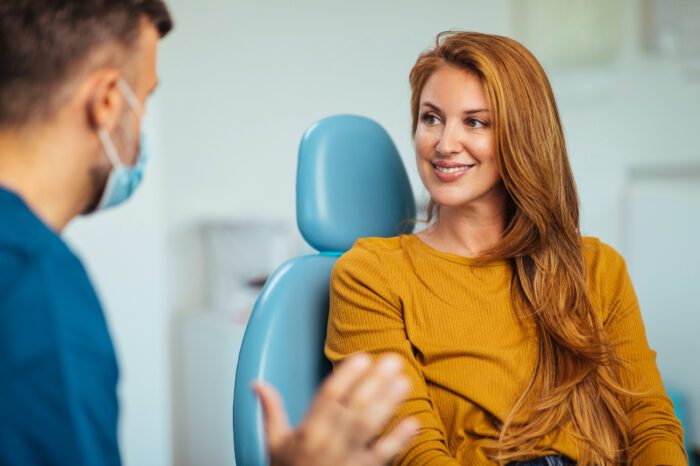Sleep apnea affects many people. It causes interruptions in breathing during sleep. This condition can lead to serious health problems. People often seek help from doctors. However, a dentist could also provide valuable treatment.

Understanding Sleep Apnea
Sleep apnea is a disorder that causes breathing to stop and start repeatedly. Many people with sleep apnea snore loudly. They may feel tired even after a full night’s sleep. Other symptoms include morning headaches and difficulty concentrating. Sleep disorders can lead to serious complications. These include high blood pressure, heart disease, and stroke. It can also increase the risk of diabetes and liver problems.
How Dentists Can Help
Dentists can play a crucial role in treating sleep apnea. They understand the structure of the mouth and throat. This knowledge allows them to identify issues that contribute to sleep apnea. One common treatment dentists provide is oral appliance therapy. This involves wearing a custom-made device during sleep. The device helps keep the airway open. It can be an effective alternative to continuous positive airway pressure (CPAP) therapy. Many people find CPAP machines uncomfortable. Oral appliances are often more comfortable and easier to use. Dentists can also recommend exercises to strengthen throat muscles. These exercises could help keep the airway open during sleep.
Advantages of Seeing a Dentist
Seeing a dentist for sleep apnea has several advantages. Dentists can provide a more personalized approach. They can create custom-fit oral appliances tailored to each patient’s needs. This often leads to more effective treatment. Dentists can also monitor progress more closely. They can make adjustments to the oral appliance as needed. This ensures the device continues to work effectively. Regular check-ups with a dentist can help identify any new issues. This allows for timely intervention. Another advantage is convenience. Many people see their dentist regularly. This makes it easier to address sleep apnea concerns. Combining dental care and sleep apnea treatment could save time and make it easier to manage overall health.
What to Expect During a Dental Visit
During your visit, the dentist will ask about your symptoms. They will perform a thorough examination. This includes checking your mouth, throat, and jaw. The dentist may also take X-rays. This helps identify any structural issues contributing to sleep apnea. If the dentist suspects a sleep disorder, they may recommend a sleep study. This study monitors your breathing during sleep. It can confirm the diagnosis. Based on the results, the dentist will develop a treatment plan.
If needed, the dentist will create a custom-fit oral appliance for you. They will take impressions of your teeth and mouth. These impressions are used to make the device. Once the device is ready, the dentist will ensure it fits properly. They will provide instructions on how to use and care for it.
Maintaining Your Oral Appliance
Proper care of your oral appliance is essential. This ensures it remains effective. Clean the device daily. Use a soft toothbrush and mild soap. Avoid using hot water as it can damage the appliance. Store the device in a protective case when not in use. This prevents damage. Regular check-ups with your dentist are important. They can inspect the device for wear and tear. They can also make any necessary adjustments.
Sleep apnea is a serious condition that requires proper treatment. If you suspect you have sleep apnea, consider seeing a dentist. They could help improve your sleep and overall health. For those in Coastal Virginia, consider visiting First Light Dental. Dr. William Harper and his team aim to assist with your sleep apnea needs. They offer comprehensive care and personalized treatment plans. Schedule an appointment today to learn how you could improve your sleep and health.

